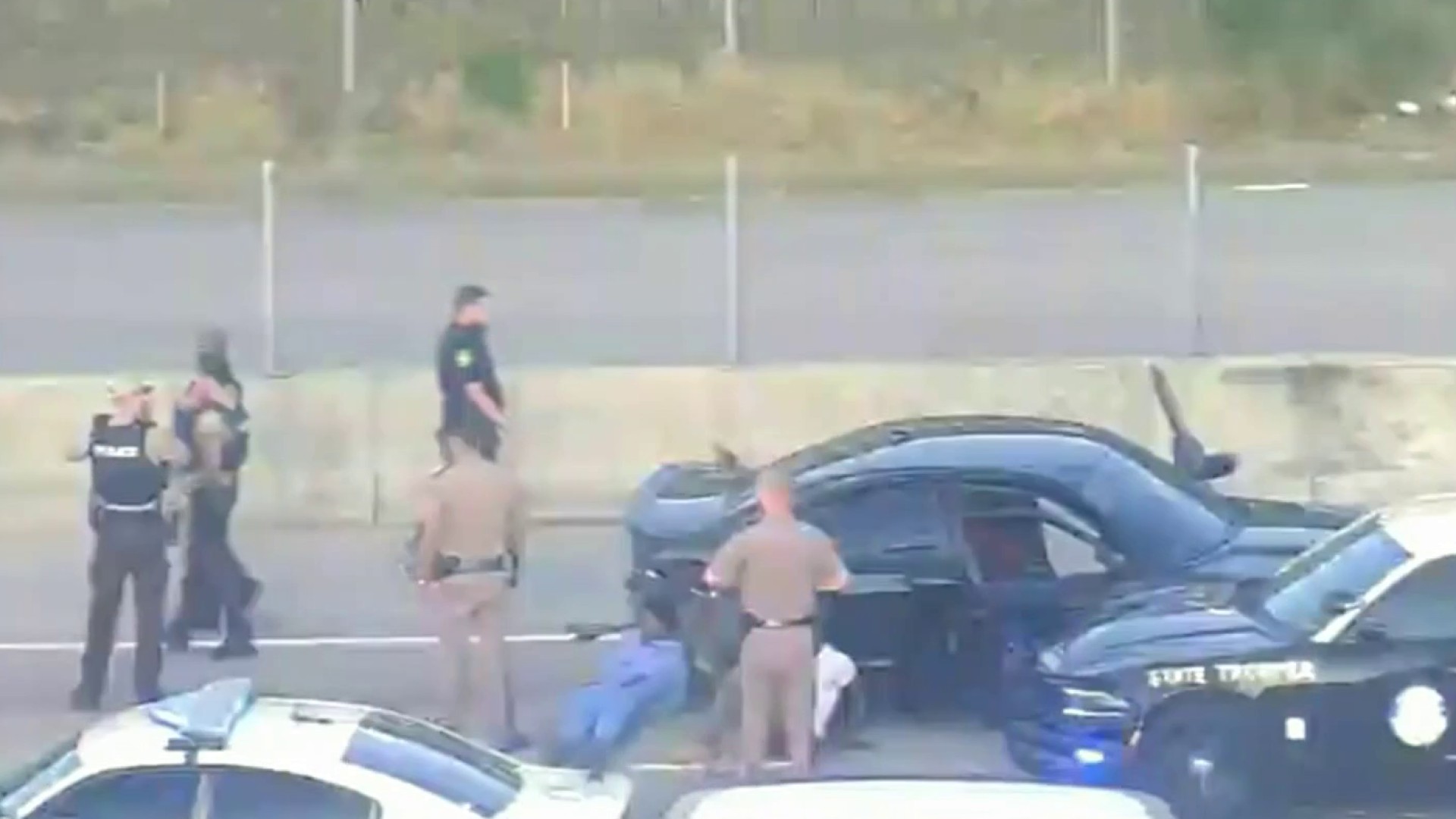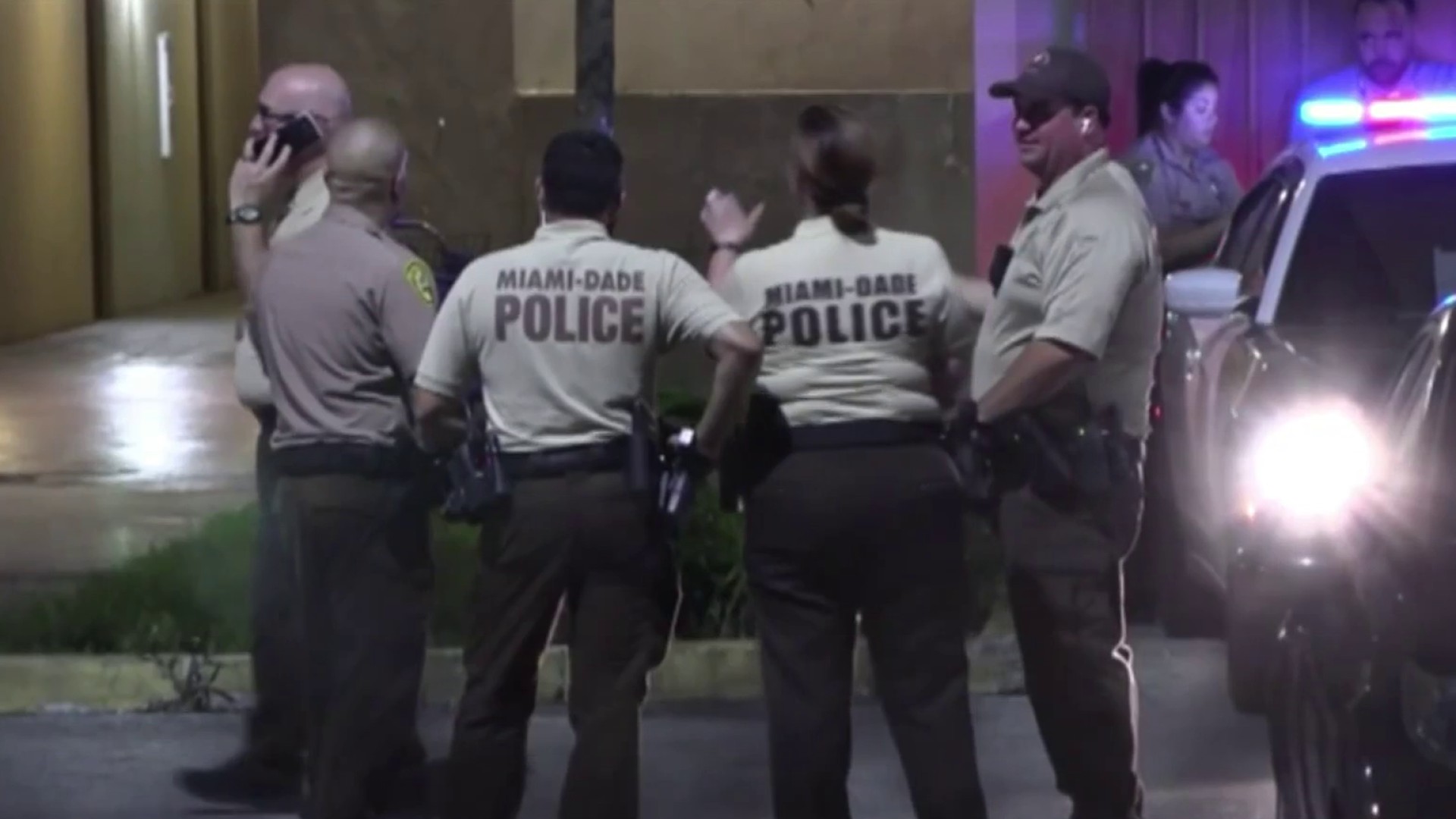Steven Payne says he was on his way from his job to coach track practice when a Miami-Dade Police officer approached him with his gun drawn.
According to the police report, the officer, Carlos Angulo, saw Payne speeding through a residential neighborhood and not stopping at stop signs until he pulled into a driveway. Angulo's body camera video shows the encounter that happened in November 2017.
With his weapon pointed at Payne, Angulo can be heard giving orders. "I don't need you to say anything. I don't anything from you right now," Angulo is heard saying on the video. "I just need you to sit there quiet until my back up arrives."
Payne says the officer had no reason to point his gun at him. "I hadn't done anything wrong," Payne told us in an interview after filing a federal lawsuit against the MDPD for the arrest. "My mom taught me make your hands visible. No sudden moves." He says he complied.
Payne says he spent a night in jail and lost his job because of the arrest.
A few months later, he was convicted of a charge of reckless driving.
He also discovered through social media another man who says the same MDPD officer approached him in a similar way.
Local
Robert Menard's encounter with Officer Angulo was also captured on body cam video.
But he says he never should have been stopped.
"Get out of the car and stop resisting," Angulo can be heard telling Menard.
Menard says he was sitting in his car with a relative in front of his cousin's home when Angulo approached him with his weapon drawn. He says the officer told him it was because his windows were too dark.
"That was a frightening moment. I really thought that I'd get shot. I've never stared down the barrel of a gun before in my life. It impacted me greatly," he said.
He was given a ticket but released and not taken to jail.
Both men are suing Angulo and the Miami-Dade Police Department in federal court.
"I think this involves an issue of training but more importantly oversight," said Chezky Rodal, an attorney representing both men. "We need the police. For the most part they do a great and honorable job, but there are those few who really make it tough for a lot of people."
The lawsuit comes weeks after video of Dyma Loving's arrest went viral.
Video recorded on a friend's cell phone showed her being thrown to the ground by an officer. She had called 911 when a man had pointed a weapon at her. But it was Loving who the officer arrested. The Miami-Dade State Attorney's office eventually dropped the charges. Loving sued the department and the officer claiming her civil rights were violated. The department took the officer off the streets and he is no longer training officers during an investigation.
"If we stop it sooner than later, hopefully officers will get trained better and we will have better policing out here," Loving said.
Miami-Dade Police Director Juan Perez has spent the past several weeks dealing with the fallout from what the videos show.
"We are committed to doing what's right for this community and that means being transparent," Perez told us during a recent one-on-one interview. "If somebody feels they've been wronged and a lawsuit is their way to fix that wrong, I give kudos to them."
He realizes the video may give the impression that there is a serious rift between his officers and some in the community. But he says there are fewer complaints and lawsuits being filed against the department.
"When we've been wrong, I come out and say we've been wrong and I take action. That's been proven over and over again to a point that we have had to arrest officers under my command and that's not an easy thing to do," Perez said. "I hope the community sees that--that I hold this department accountable."
Perez recognizes the videos are a real challenge to the department's relationship with the African-American community.
"It's concerning to me because the places where we work and I certainly work the hardest is in the African-American communities because that's the area where we have the most distrust," Perez said.
Miami-Dade NAACP President Ruben Roberts says he is in close touch with Perez and those running other area police agencies. He agrees that most officers are doing the right thing, but said those who aren't following the rules need to be weeded out.
"I know that this is not the edict of their departments but we still have to figure out a way to address this issue," Roberts said."You treat all of these people that you encounter, whether they be black white or whatever, with respect and dignity."
Perez believes the department is addressing those concerns.
MDPD used a federal grant from the Department of Justice to have an indepedent study done about their body camera program. The study found a decrease in excessive force lawsuits. From a high of 52 lawsuits filed in 2011, there were 12 in 2016 and four in 2017.
Perez credits the implementation of body worn cameras as one reason for the drop in lawsuits and in the number of complaints filed.
He says dozens of complaints have been disproven by the video from cameras.
The department says it spends $2.1 million per year for internal affairs investigations into excessive force complaints, including for staffing. But he says the department is spending less on payouts to people because the number of lawsuits is down.
"We need the community to be with us and they need to understand that 99 percent of the time our officers are doing the right thing, despite some missteps," Perez said. "Isolated incidents should not be what defines us as a law enforcement agency."



